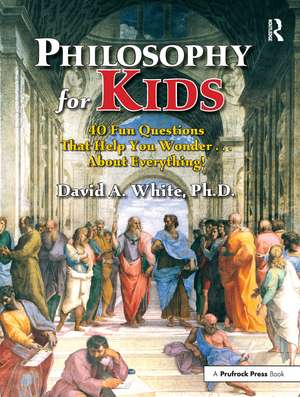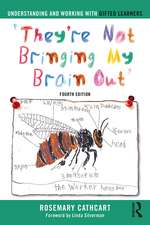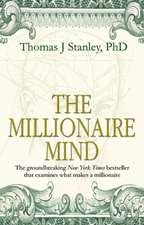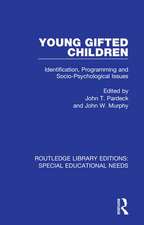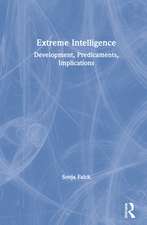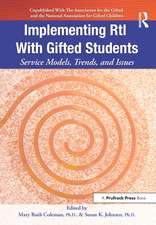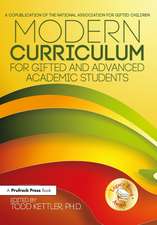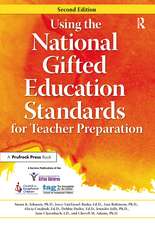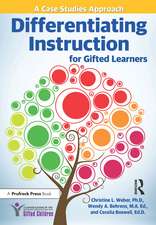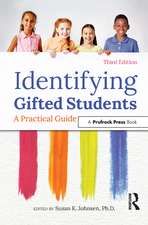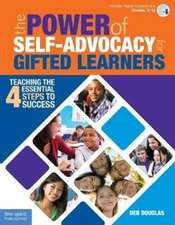Philosophy for Kids: 40 Fun Questions That Help You Wonder About Everything!
Autor David A. Whiteen Limba Engleză Paperback – 2001
Allow them to grapple with the questions philosophers have discussed since the ancient Greeks. Questions include: "Who are your friends?," "Can computers think?," "Can something logical not make sense?," and "Can you think about nothing?" Young minds will find these questions to be both entertaining and informative. If you have ever wondered about questions like these, you are well on the way to becoming a philosopher
"Philosophy for Kids" offers young people (ages 10 and up) the opportunity to become acquainted with the wonders of philosophy. Packed with exciting activities arranged around the topics of values, knowledge, reality, and critical thinking, this book can be used individually or by the whole class. Each activity allows kids to increase their understanding of philosophical concepts and issues and enjoy themselves at the same time.
In addition to learning about a challenging subject, students philosophizing in a classroom setting, as well as the casual reader of "Philosophy for Kids," will sharpen the ability to think critically about these and similar questions. Experiencing the enjoyment of philosophical thought enhances a young person's appreciation for the importance of reasoning throughout the traditional curriculum of subjects.
The book includes activities, teaching tips, a glossary of terms, and suggestions for further reading.
Grades 4-12
Preț: 179.78 lei
Nou
34.41€ • 35.46$ • 29.05£
Carte disponibilă
Livrare economică 10-24 februarie
Livrare express 24-30 ianuarie pentru 33.70 lei
Specificații
ISBN-10: 1882664701
Pagini: 214
Dimensiuni: 210 x 280 x 13 mm
Greutate: 0.62 kg
Ediția:1
Editura: Taylor & Francis
Colecția Routledge
Locul publicării:Oxford, United Kingdom
Public țintă
Professional Practice & DevelopmentCuprins
Notă biografică
Recenzii
Descriere
Inspire animated discussions of questions that concern kids--and all of us--with this innovative, interactive book. Open your students' minds to the wonders of philosophy.
Allow them to grapple with the questions philosophers have discussed since the ancient Greeks. Questions include: "Who are your friends?," "Can computers think?," "Can something logical not make sense?," and "Can you think about nothing?" Young minds will find these questions to be both entertaining and informative. If you have ever wondered about questions like these, you are well on the way to becoming a philosopher
"Philosophy for Kids" offers young people (ages 10 and up) the opportunity to become acquainted with the wonders of philosophy. Packed with exciting activities arranged around the topics of values, knowledge, reality, and critical thinking, this book can be used individually or by the whole class. Each activity allows kids to increase their understanding of philosophical concepts and issues and enjoy themselves at the same time.
In addition to learning about a challenging subject, students philosophizing in a classroom setting, as well as the casual reader of "Philosophy for Kids," will sharpen the ability to think critically about these and similar questions. Experiencing the enjoyment of philosophical thought enhances a young person's appreciation for the importance of reasoning throughout the traditional curriculum of subjects.
The book includes activities, teaching tips, a glossary of terms, and suggestions for further reading.
Grades 4-12
